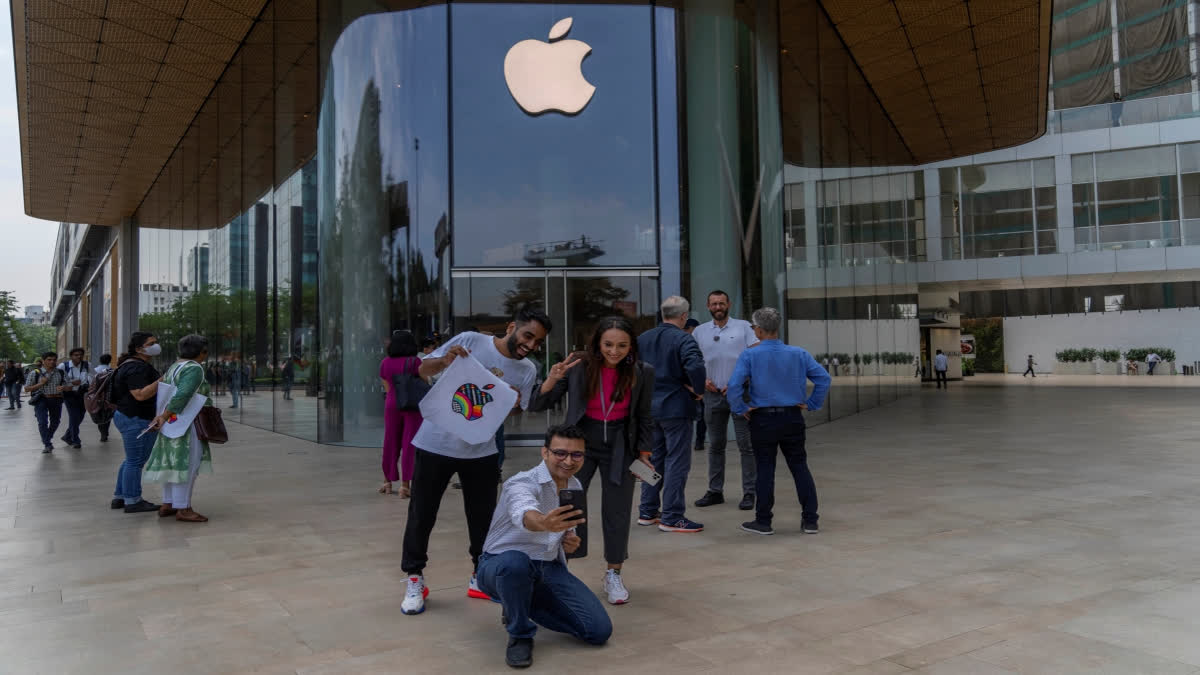New Delhi: Apple Inc. is set to open its first flagship store in India in a much-anticipated launch Tuesday that highlights the company's growing aspirations to expand in the country it also hopes to turn into a potential manufacturing hub. Dozens lined up outside for the grand opening. Located in India's financial capital, Mumbai, the store's design is inspired by the iconic black-and-yellow cabs unique to the city. A second store will open Thursday in the national capital, New Delhi.
"India has such a beautiful culture and an incredible energy, and we're excited to build on our long-standing history," the company's CEO Tim Cook, who is in Mumbai, said in a statement. The tech giant has been operating in India for more than 25 years, selling its product through authorized retailers and the website it launched a few years ago. But regulatory hurdles and the pandemic delayed its plans to open a flagship store.
The new stores are a clear signal of the company's commitment to invest in India, the second-largest smartphone market in the world where iPhone sales have been ticking up steadily, said Jayanth Kolla, analyst at Convergence Catalyst, a tech consultancy. The stores show "how much India matters to the present and the future of the company," he added.
For the Cupertino, California-based company, India's sheer size makes the market especially encouraging. About 600 million of India's 1.4 billion people have smartphones, "which means the market is still under-penetrated and the growth prospect is huge," said Neil Shah, vice president of research at technology market research firm Counterpoint Research.
Between 2020 and 2022, the Silicon Valley company has gained some ground in the smartphone market in the country, going from just about 2% to capturing 6%, according to Counterpoint data. Still, the iPhone's hefty price tag puts it out of reach for the majority of Indians. Instead, iPhone sales in the country have thrived among the sliver of upper-middle-class and rich Indians with disposable incomes, a segment of buyers that Shah says is rising. According to Counterpoint data, Apple has captured 65% of the "premium" smartphone market, where prices range up from 30,000 rupees ($360).
